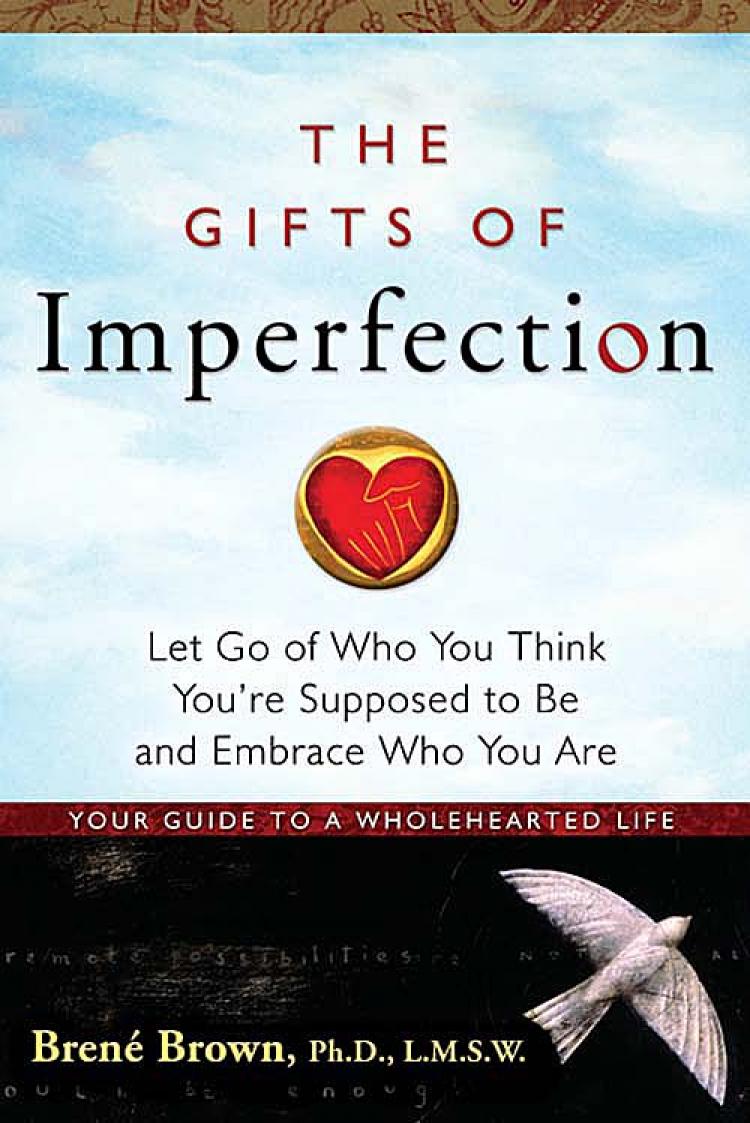I bawled.
Not just those little corner-of-the-eye-tears that can be hastily mopped up, but shoulder-shaking sobs reminiscent of those induced by the first five minutes of Up.
I could blame being pregnant and hormonal (and did), but I genuinely think that Disney’s portrayal of Joy and Sadness touches on something pretty deep within the human condition.
In the film, Sadness’s character is ostracised by the other emotions (Joy, Disgust, Anger and Fear) in Headquarters (the brain of 11 year old Riley). No one can quite see the point in her existence. All she does is make things, well, sad, tainting everything she touches with her blue aura of depression. At one point, Joy even draws a chalk circle and shoves Sadness inside it in a desperate attempt to stop her from contaminating Riley’s memories.
The film takes Joy and Sadness on a journey together through the murky recesses of Riley’s brain until – finally – Joy starts to understand that Sadness has a function. Tears are not inherently bad. Crying is not simply something to be swept under the carpet. Some of our profoundest, and most beautiful, experiences in life are possible only because we experience painful emotion.
This is not something that I like to admit.
I don’t like being sad. I hate crying. Especially in front of other people. And, most of the time, I wish I could just hide my sadness in a corner (or a chalk circle) and ignore it completely. We don’t want to engage with things that are hard and painful or complicated so – for the most part – we don’t. We do what Joy does to Sadness in Inside Out: ignore, avoid and try to get a handle on it.
A couple of years ago, I was really struggling with being sad. I can’t quite explain where the sadness came from, but I was just quite sad. It was difficult to talk to other people about because I didn’t really feel like I had a legitimate reason for being sad. Nothing particularly awful or tragic had happened. I just felt down. Life felt grey and slightly pointless and even though the things that I knew to be true were still true (God loved me; Hamish loved me; my friends and family loved me), I couldn’t shake the feeling that perhaps they weren’t. I didn’t know how to explain it and was ashamed to try with most people because I feared their judgement or – worse – their helplessness. I didn’t want to superimpose my sadness onto other people in case they felt like they had to try and do something about it, and then felt bad when they couldn’t.
I have deleted and re-written that last paragraph several times because it isn’t something I have admitted to many people and, if I’m honest, I didn’t really have any intention of admitting publicly on a blog. But that, I think, is precisely the point: we don’t know how to talk about sadness. We don’t know what to do with not being ok, and with other people not being ok, so we don’t do anything. Ignore. Avoid. Get a handle on it. That is our strategy.
Which brings me to Brene. A friend recommended one of her TED talks a long long time ago, but I had forgotten about it, and then, last week, my friend Izzy lent me her book, The Gifts of Imperfection. I consumed it in about three days. I can’t do the book justice now, and am hesitant to reduce Brown’s research too much through summarising, but what resonated most with me was Brown’s insistence that when we try to avoid (or numb – her word) the painful emotions of life, we limit our capacity to really feel life’s beautiful emotions.
I have deleted and re-written that last paragraph several times because it isn’t something I have admitted to many people and, if I’m honest, I didn’t really have any intention of admitting publicly on a blog. But that, I think, is precisely the point: we don’t know how to talk about sadness. We don’t know what to do with not being ok, and with other people not being ok, so we don’t do anything. Ignore. Avoid. Get a handle on it. That is our strategy.
Which brings me to Brene. A friend recommended one of her TED talks a long long time ago, but I had forgotten about it, and then, last week, my friend Izzy lent me her book, The Gifts of Imperfection. I consumed it in about three days. I can’t do the book justice now, and am hesitant to reduce Brown’s research too much through summarising, but what resonated most with me was Brown’s insistence that when we try to avoid (or numb – her word) the painful emotions of life, we limit our capacity to really feel life’s beautiful emotions.
She writes, “The most powerful emotions that we experience have very sharp points, like the tip of a thorn. When they prick us, they cause discomfort and even pain…for many of us our first response to vulnerability and pain of these sharp points is to not lean into the discomfort and feel our way through but to make it go away. We do that by numbing and taking the edge off the pain with whatever provides the quickest relief.” (The Gifts of Imperfect, p.70)
 All of us have our own “numbing” strategies: the more obvious addictions of alcohol, drugs and food; and the more subtle ones of work, Facebook, perfectionism, and busyness. We use these strategies to cope with pain, with sadness, with thorny feelings that we aren’t sure what to do with. But, and this is the part of Brown’s research that surprised her, when we do this, when we take the edge off our sadness, we dull our capacity to experience joy: “There is no such thing as selective emotional numbing. There is a full spectrum of human emotions and when we numb the dark, we numb the light…joy is as thorny and sharp as any of the dark emotions. To love someone fiercely, to believe something with your whole heart, to celebrate a fleeting moment in time, to fully engage with a life that doesn’t come with guarantees – these are risks that involve vulnerability and often pain. When we lose our tolerance for discomfort, we lose joy.” (pp.72-73)
All of us have our own “numbing” strategies: the more obvious addictions of alcohol, drugs and food; and the more subtle ones of work, Facebook, perfectionism, and busyness. We use these strategies to cope with pain, with sadness, with thorny feelings that we aren’t sure what to do with. But, and this is the part of Brown’s research that surprised her, when we do this, when we take the edge off our sadness, we dull our capacity to experience joy: “There is no such thing as selective emotional numbing. There is a full spectrum of human emotions and when we numb the dark, we numb the light…joy is as thorny and sharp as any of the dark emotions. To love someone fiercely, to believe something with your whole heart, to celebrate a fleeting moment in time, to fully engage with a life that doesn’t come with guarantees – these are risks that involve vulnerability and often pain. When we lose our tolerance for discomfort, we lose joy.” (pp.72-73)
I don’t quite understand why it is true or why we react this way, but I think it is. I recognise in myself the fear of being joyful (which I know sounds paradoxical). Sometimes I am afraid to allow myself to be truly happy. I am afraid to give in to the joy and beauty and wonder of a moment because – in doing so – I acknowledge that the moment might pass, that joy might be lost, that it is transient and unpredictable. Denial becomes a bizarre process of self-protection: to not be joyful is less costly than being joyful and having that joy snatched away.
In Inside Out, Joy cannot tolerate Sadness. She is terrified of allowing sadness to infiltrate what could otherwise be happy. We do the same thing but, in doing so, we allow our fear of what might be lost to prevent us from ever truly enjoying the thing in the first place: “We’re afraid to lose what we love the most, and we hate that there are no guarantees. We think that not being grateful and not feeling joy will make it hurt less.” (p.82)
Again, I know that I do this. I put a dampener on joy. I cut it off lest it get out of hand and something else cut it off instead. Withholding from myself the full experience of how good and joyful something actually is is my own peculiar self-preservation. It protects me from the potential vulnerability of someone else poking fun at my joy, at my joy being popped and ending up in a heap on the floor.
It is also not very fun.
As ever, I don’t write these things with answers or dogma or solutions. I try and write them with honesty. I want 2016 to be a joyful year, a year in which I cultivate and practice joy and allow myself to feel it. A year in which I am grateful and thankful and celebrate and dare to enjoy the goodness of moments even though they will fade, or perhaps precisely because they will. This does not mean that 2016 will be a year without sadness or hurt, but it is a year in which I want to resolve to allow myself to be joyful: to dance around the living room even though I look silly, to laugh too loudly in places where I shouldn’t, to drink in the moments of our daughter growing up in awe and wonder without fearing about her future, to live, as Brown suggests, wholeheartedly.
In Inside Out, Joy cannot tolerate Sadness. She is terrified of allowing sadness to infiltrate what could otherwise be happy. We do the same thing but, in doing so, we allow our fear of what might be lost to prevent us from ever truly enjoying the thing in the first place: “We’re afraid to lose what we love the most, and we hate that there are no guarantees. We think that not being grateful and not feeling joy will make it hurt less.” (p.82)
Again, I know that I do this. I put a dampener on joy. I cut it off lest it get out of hand and something else cut it off instead. Withholding from myself the full experience of how good and joyful something actually is is my own peculiar self-preservation. It protects me from the potential vulnerability of someone else poking fun at my joy, at my joy being popped and ending up in a heap on the floor.
It is also not very fun.
As ever, I don’t write these things with answers or dogma or solutions. I try and write them with honesty. I want 2016 to be a joyful year, a year in which I cultivate and practice joy and allow myself to feel it. A year in which I am grateful and thankful and celebrate and dare to enjoy the goodness of moments even though they will fade, or perhaps precisely because they will. This does not mean that 2016 will be a year without sadness or hurt, but it is a year in which I want to resolve to allow myself to be joyful: to dance around the living room even though I look silly, to laugh too loudly in places where I shouldn’t, to drink in the moments of our daughter growing up in awe and wonder without fearing about her future, to live, as Brown suggests, wholeheartedly.












